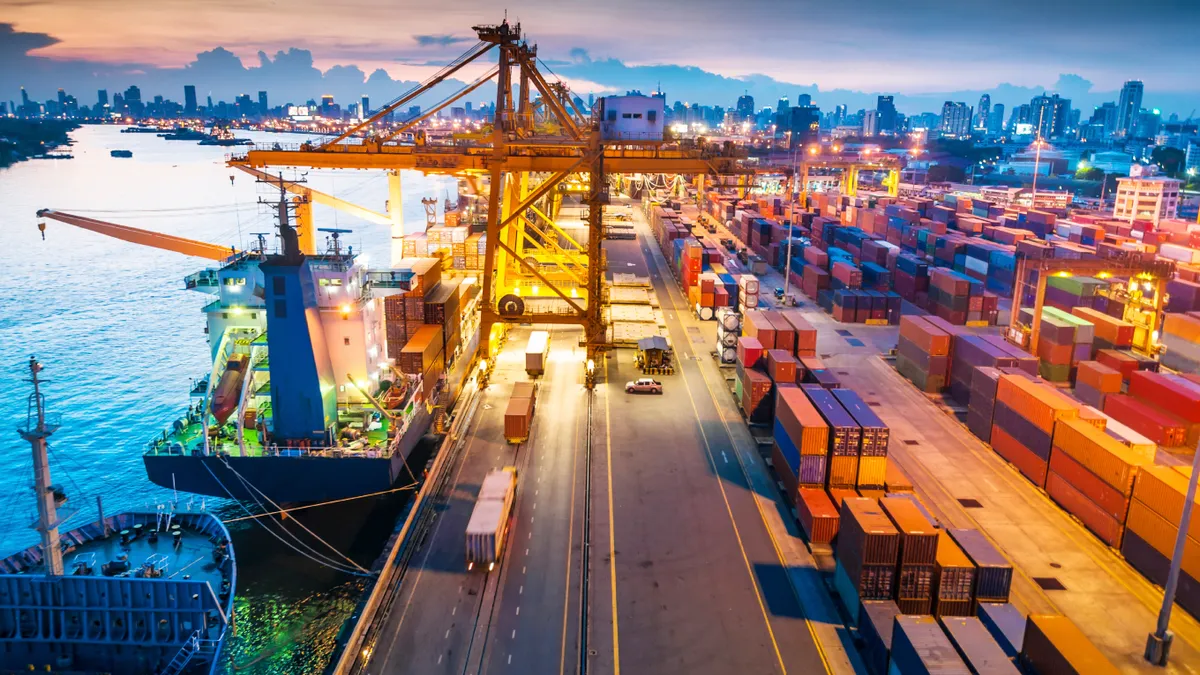Dive Brief:
- The U.S. Federal Maritime Commission will complete its efforts toward an industry-based supply chain innovation project this fall, which it will then present via report, American Shipper reported.
- The project was launched in May 2016, out of industry frustration to the ongoing gridlock at many U.S. container ports in 2014 and 2015. Ocean carriers had begun relying on larger ships, which in turn caused chaotic conditions in cargo flow. Further, West coast labor disputes between management and dockworkers caused carriers and shippers alike to seek alternative ports and transport modes for cargo movement.
- Participants in the initiative include shippers, carriers, industry intermediaries and consultants to the import and export supply chain. Once the report is published, the FMC intends to seek authorization to create a concept design for a national seaport information portal.
Dive Insight:
Nearly nine months after a team of supply chain experts suggested studying the efficacy of a national portal of supply chain information for ports across the nation, the report revealing their results is almost here.
In December 2016, Federal Maritime Commissioner Rebecca Dye convened three teams of 34 supply chain experts to advise on recommendations for operational challenges at West coast ports. Shippers were unhappy with a variety of challenges, such as a perception of poor financial stability, customer service, and booking dependability at various ports, and had resorted to alternative methods of transport as a result. However, when the FMC sought funding for a supply chain information portal demonstration project, the U.S. Senate Committee on Commerce, Science & Transportation denied funding, citing only labor concerns.
News that the FMC report is nearly complete means that active, positive solutions and a move toward better container transport tracking will soon be enhancing American port users. Despite the funding refusal on the part of the Senate, those already working toward improvements, such as GE Transportation and the Port of Los Angeles may step up to offer design and implementation support. Further, potential users of the portal such as various transport carriers as well as their shipping counterparts may also contribute as a means of regaining beneficial cargo owner (BCO) and shipper trust.













